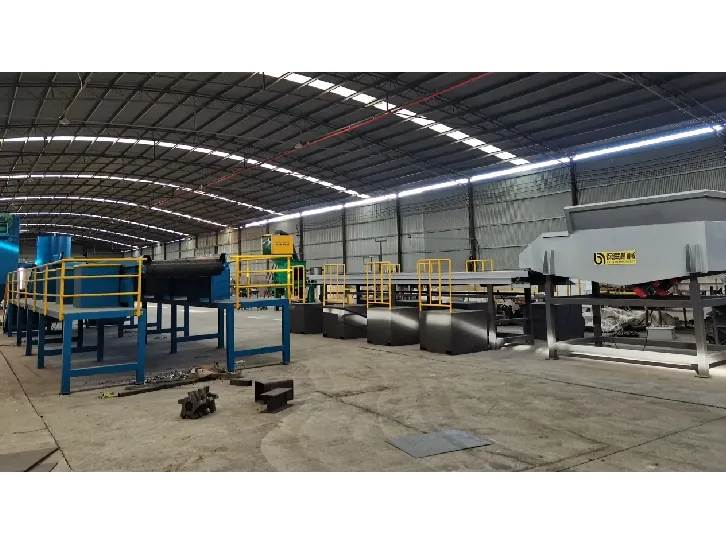

நவ் . 10, 2024 08:16 Back to list
The Costs of Setting Up an Aluminium Scrap Recycling Plant
The demand for aluminium recycling plants has surged in recent years, driven by increasing environmental awareness, rising raw material costs, and the need to reduce landfill waste. Establishing an aluminium scrap recycling plant can be a lucrative venture, but it comes with a considerable cost. This article explores the various factors influencing the costs associated with setting up such a facility.
Initial Capital Investment
One of the most significant costs in establishing an aluminium scrap recycling plant is the initial capital investment. This includes the purchase of land, construction of the facility, and installation of necessary equipment. The cost of land varies greatly depending on location, size, and local real estate market conditions. In urban areas or regions with high scrap generation rates, land prices tend to be higher.
The construction of a recycling facility also demands considerable investment. It involves not only the physical building but also compliance with environmental and safety regulations. Expenses for building permits, environmental assessments, and adherence to local zoning laws need to be factored into the overall budget.
Machinery and Equipment Costs
The machinery and equipment required for an aluminium recycling plant represent a substantial portion of the total cost
. Key equipment includes shredders, magnets, eddy current separators, and furnaces for melting aluminium scrap. The prices of these machines can vary based on their capacity, efficiency, and technological sophistication.Investing in modern, energy-efficient equipment may have a higher upfront cost but can lead to significant savings in operating costs over time. Additionally, employing advanced technology can increase productivity and ensure higher quality of recycled aluminium, making the investment worthwhile in the long run.
Operational Costs

Once the plant is up and running, ongoing operational costs will present a sizable financial commitment. These costs typically include raw material procurement, energy consumption, labor, and maintenance.
Acquiring aluminium scrap is essential, and costs can fluctuate based on market demand and supply. Establishing relationships with suppliers and implementing efficient sourcing strategies can help mitigate these expenses.
Energy consumption is another critical factor, as recycling processes—especially melting—require substantial power. Investing in renewable energy sources may reduce long-term energy costs and improve sustainability credentials.
Labor costs also play a vital role. Hiring skilled workers who understand the recycling processes and equipment operation is crucial. Adequate training programs and employee retention strategies are essential to maintain a stable workforce, which can influence the overall efficiency and productivity of the plant.
Regulatory Costs
Regulatory compliance is a significant consideration when setting up an aluminium recycling plant. Depending on the region, there may be various environmental regulations and industry standards that need to be adhered to. Compliance can involve costs associated with waste management, emissions control, and safety measures.
It’s essential to conduct thorough research into local, state, and federal regulations and to factor these compliance costs into the overall investment. Failing to abide by these regulations could result in hefty fines and possible shutdowns, which can significantly affect profitability.
Conclusion
The costs associated with setting up an aluminium scrap recycling plant are multifaceted, including initial capital investment, equipment purchases, operational expenses, and regulatory compliance. However, with the right planning, strategic partnerships, and a focus on efficiency and sustainability, the long-term benefits can far outweigh these initial expenditures. As the world continues to emphasize the importance of recycling and sustainable practices, investing in an aluminium scrap recycling plant could not only yield profitable returns but also contribute positively to environmental conservation.
Latest news
Troubleshooting Common Eddy Separator Problems
NewsJul.04,2025
The Role of Metal Recycling Plants in Circular Economy
NewsJul.04,2025
The Impact of Recycling Line Pickers on Waste Management Costs
NewsJul.04,2025
Safety Features Every Metal Shredder Should Have
NewsJul.04,2025
How Industrial Shredders Improve Waste Management Systems
NewsJul.04,2025
How Cable Granulators Contribute to Sustainable Recycling
NewsJul.04,2025